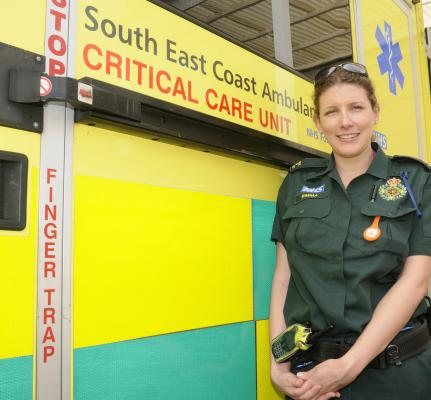Experienced paramedic
Once you have been working as a registered paramedic for two years, you can progress to roles that allow you to carry out more treatments, specialise in specific areas and take on more responsibility.
Working life
Once you have two years' experience as a registered paramedic, you can progress to be a:
- Hazardous Area Response Team (HART) paramedic
- specialist paramedic, for example in mental health
- advanced paramedic, for example in critical care
- consultant paramedic
Paramedics in these roles have the necessary experience and training to make decisions and treat patients at the emergency scene. As a result, the patient may not need to go to hospital and experienced paramedics can treat people at home.
You'll need:
- excellent communication skills
- excellent interpersonal skills
- to be able to work accurately, safely and quickly under pressure
- good driving skills
As an experienced paramedic, you may, for example:
- carry out tests (such as urine tests) and interpret the results
- undertake basic procedures in the home
- refer patients to social care services
- directly admit patients to specialist units
- prescribe and administer medication
You’ll do shift work, including evenings and weekends, and also on-call work. As part of a team, working with other healthcare professionals, you’ll have your own area of responsibility and be able to provide care independently.
Working from a response car, GP surgery or urgent care centre, you will assess patients with symptoms and conditions such as suspected fractures or chest pain. You might also see patients in nursing or residential homes, schools or prisons. You will take a patient’s medical history, examine them and order tests and scans where necessary.
There are also opportunities for experienced paramedics with extended qualifications to move into executive director posts, research and teaching roles.
Emma Relf
Critical care paramedic
Read Emma's storyMy specialist role allows me to assess and diagnose injuries and use more powerful drugs and equipment on the scene that, up until now, were only used in hospital.

Pay and benefits
Your standard working week will be around 37.5 hours on shift pattern which will usually include nights, early starts, evenings, weekends and bank holidays. As an experienced paramedic, you’ll be paid on the Agenda for Change (AFC) pay system, typically starting at band 6.
You’ll also have access to our generous pension scheme and health service discounts, as well as 27 days of annual leave plus bank holidays.
Must have skills
Experienced paramedics need to be:
- able to understand a situation quickly
- calm in stressful situations
- confident and reassuring
- resilient in dealing with one’s own, and other people’s strong emotions
- able to follow procedures
- able to work quickly and accurately
- able to work alone or in a team
- willing to educate and train new ambulance service staff
Training and development
Training will include continual professional development (CPD) through a mix of self-directed and mandatory skill refresher courses.
You may also be expected to undergo Paramedic Practice Educator (PPEd) training so you can mentor the next generation of paramedics, technicians and emergency care assistants. And you can undertake specialist training so you can prescribe a range of medication, for example if you are based in a GP surgery or A&E department.
You may have to gain further qualifications to progress too, depending on which qualifications you currently hold and which type of experienced paramedic you are.
Where the role can lead
As you gain even more experience, you could become a team leader, supervising the work of paramedics and emergency care assistants. You could become a manager, responsible for several teams. In some ambulance trusts you could progress to consultant paramedic, advising on and developing the clinical practice in that service.
Teaching or research are other options. Some experienced paramedics choose to join a specialist team such as caring for stroke patients, work on an air ambulance or in a GP surgery or A&E department where you will be trained to prescribe a range of medications.




